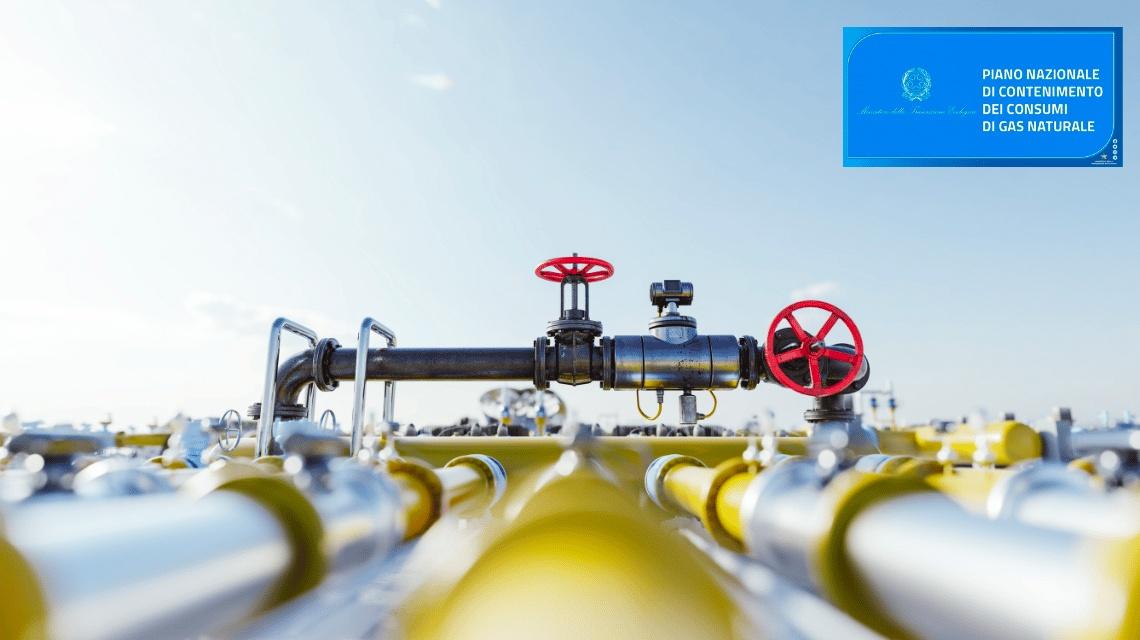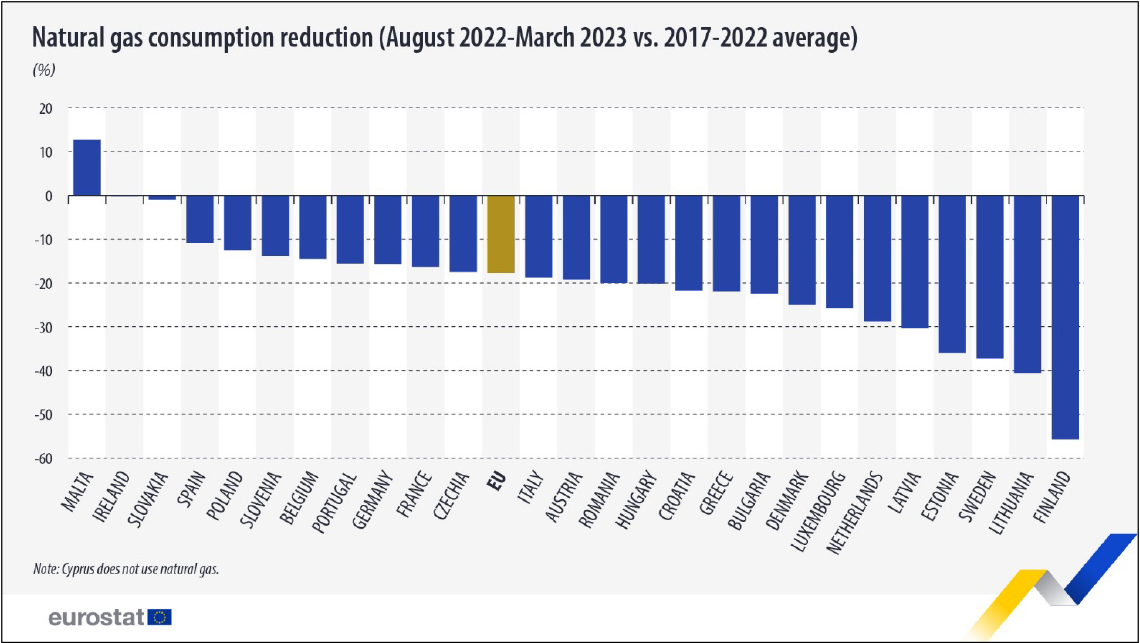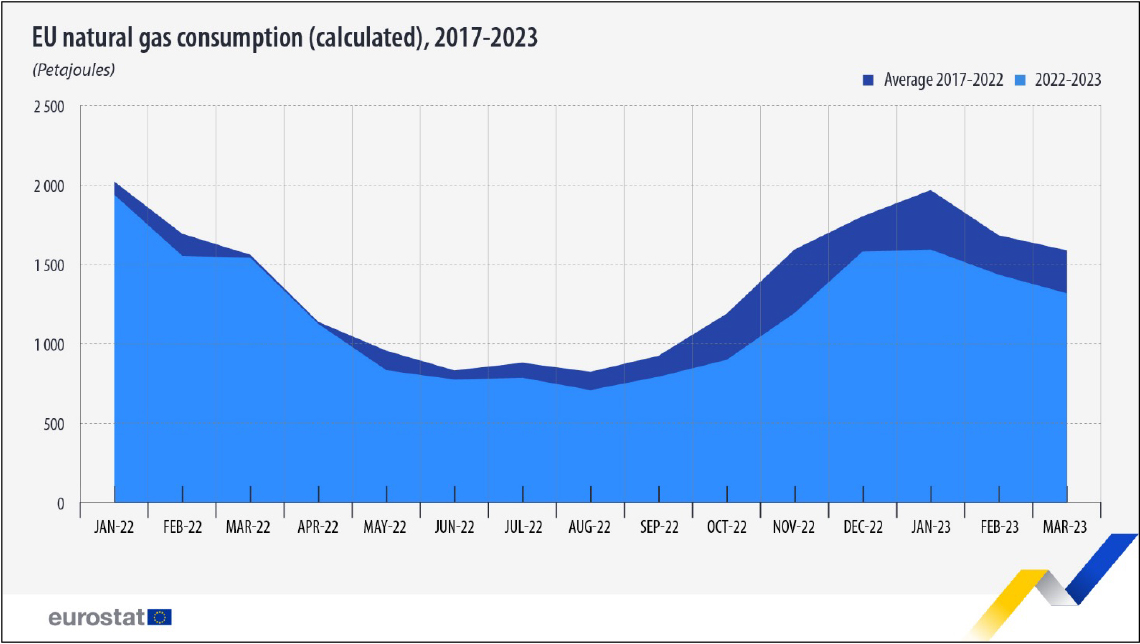Italian National Agency for New Technologies, Energy and Sustainable Economic Development

Energy: Italy, 10 billion m3 of gas saved in eight months (-18%)
In Italy, around 10 billion m3 of methane gas[1] were saved in eight months (August 2022 - March 2023), 18% less than the average consumption for the same period in the last 5 years, exceeding by about 20% (approximately 2 billion m3) the reduction of 8.2 billion m3 set by the national plan for containing natural gas consumption, as calculated by ENEA, which also reported a reduction in consumption slightly higher than the EU average (-17.7%).
In addition to maximizing thermoelectric production with fuels other than gas, the National Plan for the containment of natural gas consumption[2] has introduced measures to limit energy consumption for the residential and tertiary sectors. which include administrative measures to reduce heating (indoor temperature limits, daily ignition hours and duration of the heating period according to climate zones and a set of behavioral measures promoted through an awareness campaign conducted by ENEA and the Presidency of the Council of Ministers.
"Through these actions and the significant coomitment by ENEA, we have managed reach the objective set by the Plan and to save an additional 20% gas", pointed out Nicolandrea Calabrese, head of the ENEA Laboratory of Energy Efficiency in Buildings and Urban Development, author of the study with Francesca Caffari. "The mild temperatures of the winter season and the drastic containment measures adopted by the energy-intensive industry contributed to this result".
All EU countries met the targets set: in the period January 2022 - March 2023, gas consumption was constantly lower than the 2017-2022 average for the period. Between January and July 2022, natural gas consumption in the EU decreased even befor reaching the 15% gas reduction target set by the European Council[3]. However, the greatest decreases were recorded in the second half of 2022, starting with a 14% reduction in August (-14.3% in September, -24.4% in October, -25% in November and -12.3% in December). In 2023 consumption dropped by 19% in January, by 14.7% in February and by 17.1%. in March.
Table 1. Gross domestic consumption of natural gas in Italy. Data source: MASE
Reference period | Gross Domestic Consumption of natural gas in Italy |
|---|---|
August 2017 - March 2018 | 57,2 |
August 2018 - March 2019 | 55,1 |
August 2019 - March 2020 | 52,8 |
August 2020 - March 2021 | 55,2 |
August 2021 - March 2022 | 57,0 |
August 2022 - March 2023 | 45,5 |
Table 2. Comparison between consumption in the period August 2022-March 2023 and the average consumption in the same period in the previous 5 years
Average consumption August – March (2017-2022 | Mld Sm3 | Mld Sm3 | Mld Sm3 | |
|---|---|---|---|---|
Gross domestic consumption of natural gas in Italy | 55,5 | 45,5 | 10,0 | -18,0% |
For more information please contact:
Nicolandrea Calabrese, ENEA - Head of Energy Efficiency in Buildings and Urban Development Laboratory, Energy Efficiency Department,
Francesca Caffari, ENEA - Energy Efficiency in Buildings and Urban Development Laboratory, ENEA Energy Efficiency Department, francesca.caffari@enea.i
Notes
[1] Eurostat Data https://ec.europa.eu/eurostat/en/web/products-eurostat-news/w/ddn-20230419-1
[2] The National Natural Gas Consumption Containment Plan adopted by the Government responded to EU Regulation 2022/1369 for the voluntary 15% reduction in gas consumption in the period 1 August 2022 and 31 March 2023 (243 days), compared to the average for the same months in the previous five years, adopted by the European Council on 5 August 2022 to increase energy supply security in Europe.


